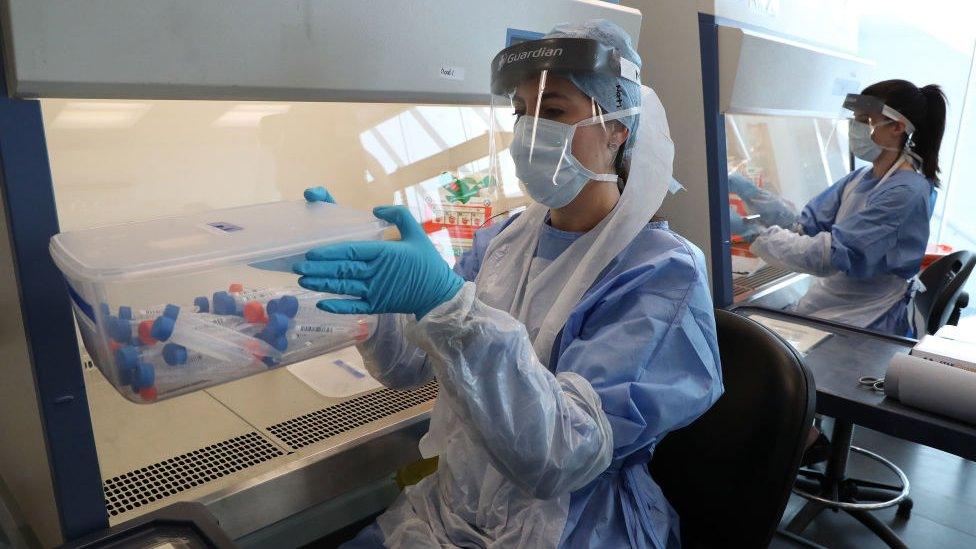Covid: Bridgend, Blaenau Gwent, Merthyr Tydfil and Newport restrictions begin
- Published
- comments
"Everyone will be affected financially"
New restrictions have come into effect in much of south Wales as Covid-19 cases continue to rise.
Bridgend, Blaenau Gwent, Merthyr Tydfil and Newport have joined Caerphilly and Rhondda Cynon Taf in lockdowns that now affect a quarter of the population.
People will not be able to enter or leave the areas without a reasonable excuse.
However First Minister Mark Drakeford has urged people across Wales to only travel if essential.
BBC Wales understands he will announce further measures later, including requiring pubs and restaurants to close at 10pm and limiting them to table service only.
Health Minister Vaughan Gething told the Welsh Parliament measures similar to those being introduced in England were being considered.
It follows a meeting between Prime Minister Boris Johnson, Mr Drakeford and first ministers from Northern Ireland and Scotland on Tuesday morning.
Caerphilly and Rhondda Cynon Taf were the first areas to have local lockdowns in Wales.
Earlier, Dr Giri Shankar of Public Health Wales (PHW) said Cardiff, the Vale of Glamorgan, Swansea, Carmarthenshire, Anglesey, Conwy, Denbighshire and Flintshire were also being monitored, and could face local restrictions.
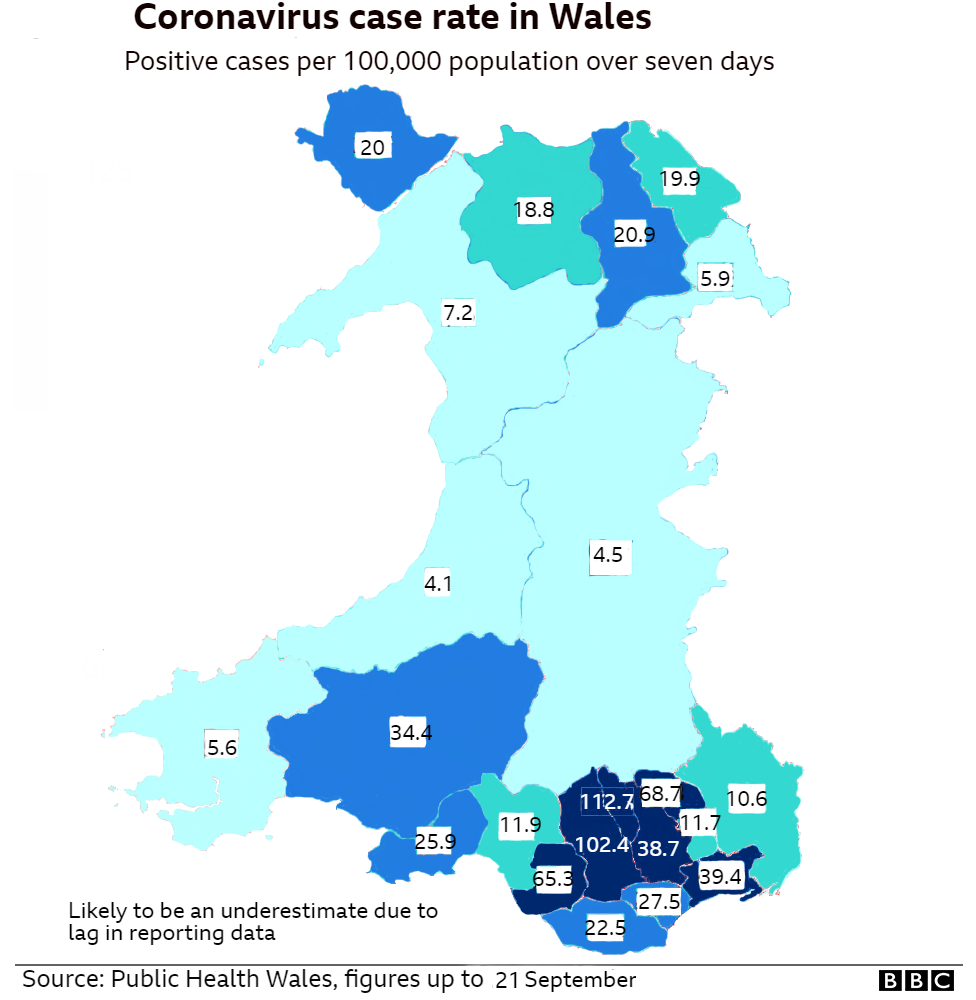
Speaking in the Senedd in response to Plaid Cymru leader Adam Price, Mr Drakeford said: "I will want to say something later today about trying to encourage people in Wales, only to make those journeys that are really necessary.
"I think every one of us should be asking ourselves - 'is that journey really essential?'
"Because the fewer people you meet, the fewer journeys you make, the less danger you are posing to yourself and others."
But he said "many" of the items the prime minister spoke of in the House of Commons for England have already been done in Wales, such as emphasising work from home.
"We have never gone down the line of saying that people should get back on the bus and get back into work," Mr Drakeford said.
Vaughan Gething is due to hold a meeting with the local authorities affected by the tighter restrictions, as well as neighbouring councils, the NHS and police, for what he described as a "joined-up regional conversation".
He told a media briefing on Monday that if data suggested further restrictions were needed across the whole region "then we can, of course, make that decision".
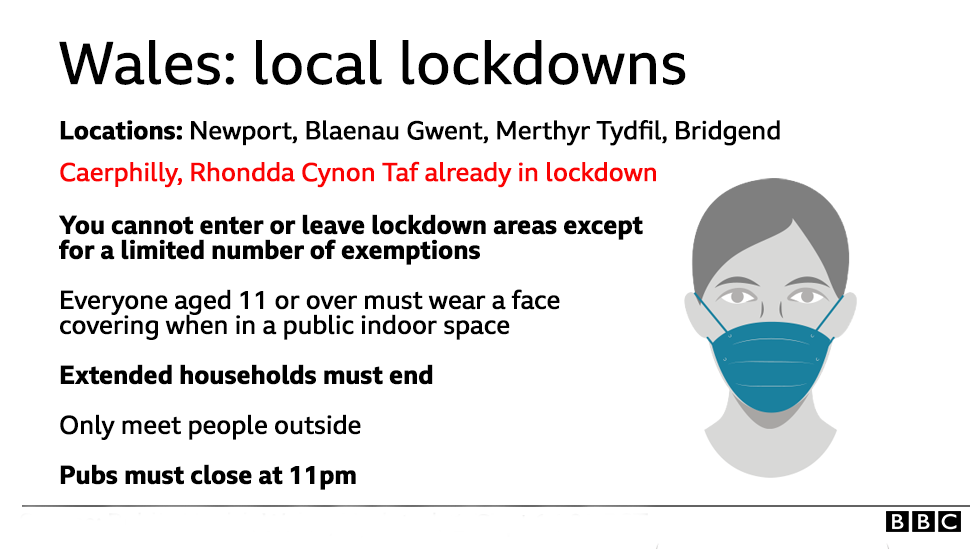
Dr Shankar, a coronavirus incident director at PHW, said people were "really diligent" during the first lockdown and coronavirus case numbers came down - but success is dependent on compliance.
He said local lockdowns needed to be in place for a minimum of three weeks in order to have any effect, and it was hoped a national lockdown would be avoided.
"I certainly hope that we don't get to that position but if case numbers continue to go up and we see more people going into hospital and needing intensive care and we see cases in our vulnerable groups... we might have to consider complete lockdowns."
He said case numbers were still increasing in RCT despite the lockdown but seemed to be stabilising in Caerphilly.
"That doesn't always mean people are not complying, we've also initiated active case finding so we're working hard to find cases and some of the case numbers can be explained because of that."

The number of people in hospital have started to go up, he added, and "sadly at some point we will expect to see some fatalities".
Merthyr Tydfil has the highest Covid-19 case rate in Wales over the past week with 112.7 cases per 100,000, closely followed by RCT with 102.4.
Both Bridgend and Blaenau Gwent have case rates above 65 per 100,000 for the past week.
Caerphilly, under lockdown for two weeks, has eased off slightly to 38.7 cases per 100,000 but Carmarthenshire is now not far behind it.

PHW data, published on Tuesday, showed Wales' average was 32.1 cases per 100,000.
The new restrictions affect 431,000 people, meaning just over 850,000 will be under local lockdown from Tuesday at 18:00 BST - more than a quarter of the 3.1m people who live in Wales.
What are the new restrictions?
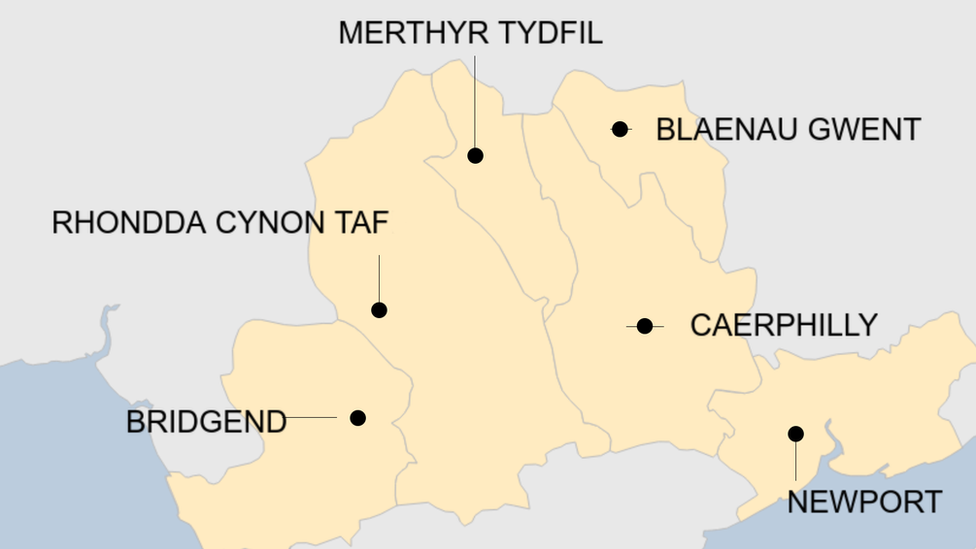
The six counties hit with the lockdown restrictions all adjoin one another in south east Wales
Under the rules, nobody is able to enter or leave the six counties without a "reasonable excuse".
Excuses listed in the law include travelling to work if you are not able to work from home, to go to school, or to give care.
You can travel to buy food and medical supplies, seek medical assistance or go to the vets, and move home.
If you are buying essential items and there is no reasonable alternative to using shops within these counties, you can do so.
However, in most cases there are expected to be alternative options, even if this involves travelling a bit further than you would normally.
Other reasons include:
Obtaining supplies for the essential upkeep, maintenance and functioning of the household, or the household of a vulnerable person
Elite athletic training and competitions
To provide or receive emergency assistance
To meet a legal obligation, and to access or receive public services
To avoid injury or illness or escape a risk of harm
Otherwise, the borders are effectively closed.
Friends and family can no longer meet indoors, while overnight stays are also banned.
All licensed premises, including pubs, will have to shut at 23:00.
Businesses 'worried'
Traders in Mumbles have mixed views of what lies ahead for the area
Valerie Woodall, 74, who owns the Fairytale of Mumbles shop in the Swansea area, reopened last Monday after being shut for six months.
However with Swansea being monitored for further potential measures, she is not sure what the future holds.
She said: "I don't know what it'll be like in a few weeks' time... possibly I might close again.
"I tried to be quite positive about it, I think it's very sad for the young people and it's very hard for people who are on their own."
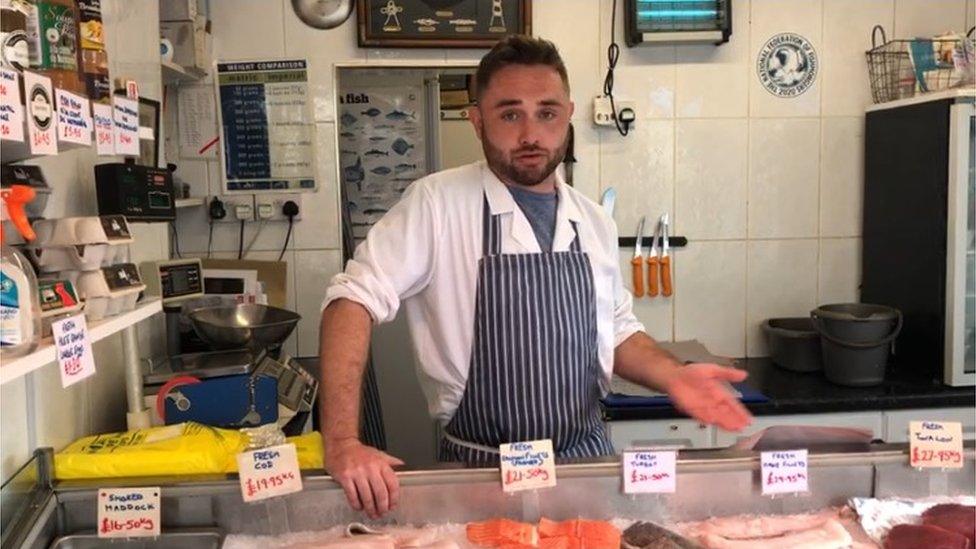
Michael Greene said his fishmongers, Coakley's, was busy during lockdown
However others find their services in demand as lockdown looms.
Fishmonger Michael Greene, also in Mumbles, said: "It does keep us busy, a lockdown is good and bad for us at the same time."
Sarah Davies, a shop manager at Port Tennant, said: "The shops have managed the queues outside quite well.
"The restrictions have been put in place quite well... in the area we've managed to stay relatively consistent."
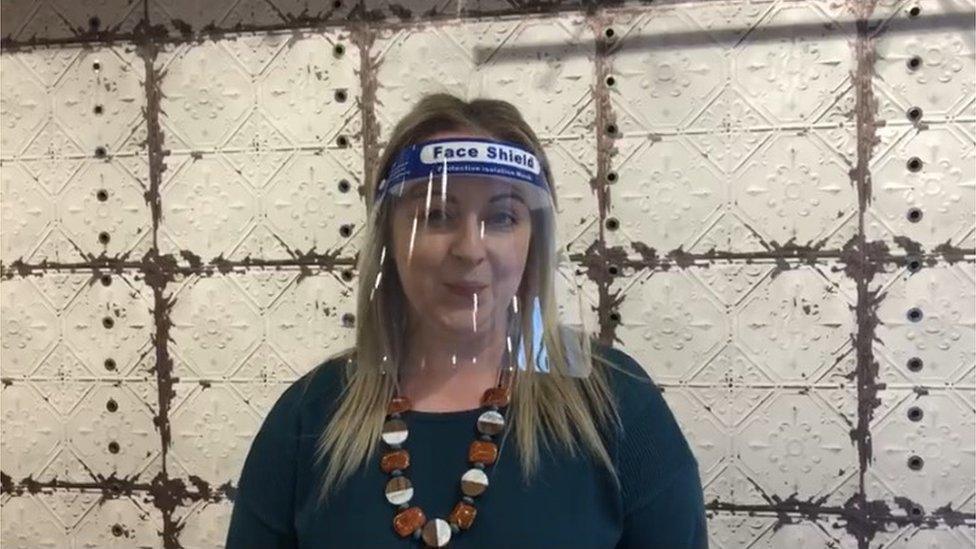
Sarah Davies praised the way businesses in Swansea have embraced coronavirus measures
'It is something we were fighting to avoid'
Newport council leader Jane Mudd said she was very supportive of the lockdown measures brought in by the Welsh Government.
"Despite the warnings that we needed to follow the rules already in place, we have seen numbers of cases continue to rise significantly," she said.
Ms Mudd added there was evidence of people entering each others' homes and spread the virus, showing social distancing had "lapsed" - and proving its importance.
"The vast majority have worked really hard to follow these rules and it is unfortunate that some have become complacent."
Bridgend council leader Mr David said: "There is a chance that we can avoid local restrictions in other parts of Wales, but it is down to the people of Wales strictly following the law and following the guidance."
He said people should maintain social distancing, wash their hands frequently and "if they've got the symptoms, stay at home".
Blaenau Gwent council leader Nigel Daniels said: "Only by working together can we help break the cycle of infection, protect our loved ones, the wider Blaenau Gwent community and prevent further more widespread restrictions."
Merthyr Tydfil council deputy leader Lisa Mytton said she was "deeply disappointed" by the need for a local lockdown., adding: "It is something we were fighting to avoid."
'UK-wide actions'
After the Cobra meeting, a Welsh Government spokesman said the Cobra meeting discussed a series of UK-wide actions in response to the increase in Covid-19 transmission.
"The first minister also welcomed the prime minister's commitment to having a regular and reliable rhythm to UK-wide decision making - with the devolved governments having a clear and important role in that process."
- Published10 October 2020
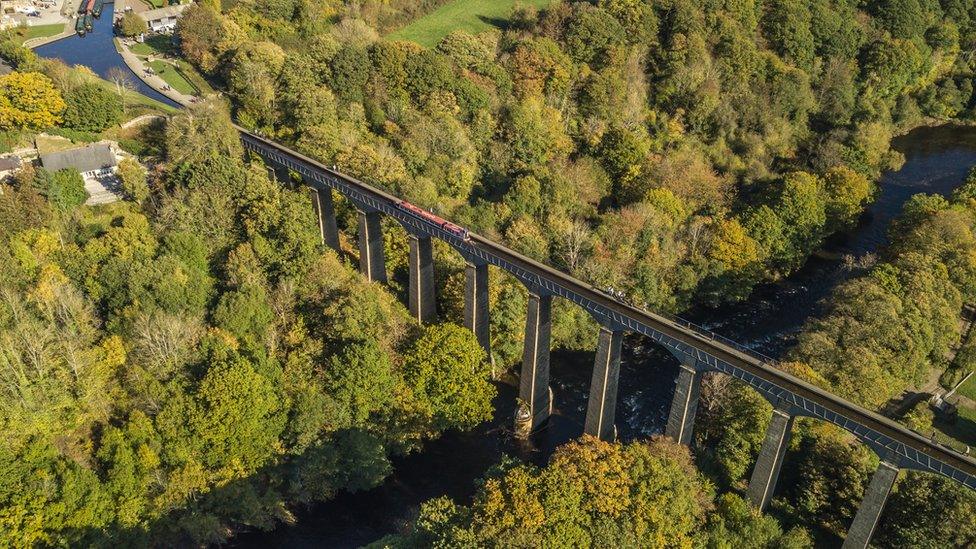
- Published21 September 2020
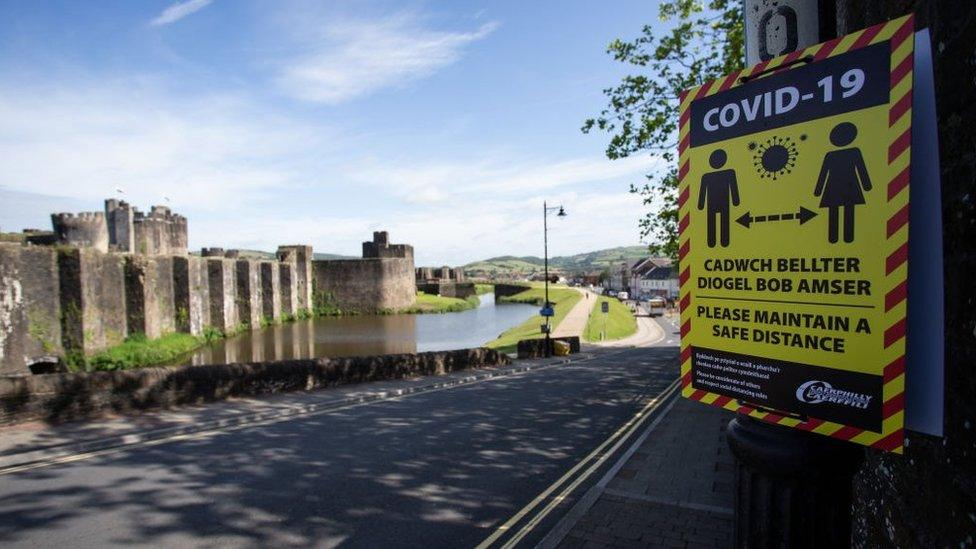
- Published26 November 2020
